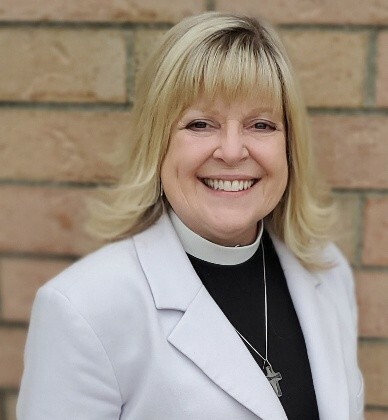
Dear Beloveds,
Across our country, people are struggling – financially, emotionally, spiritually. Division, violence, and uncertainty are paramount. We are living in a time when the weight of the world feels heavier than most of us can bear. Families are being torn apart, communities are threatened, and political leaders are trading compassion for power. Every day seems more chaotic and unmoored than the day before. For many, fear has become a daily companion. We might cry, along with the psalmist in Psalm 13, “How long, O Lord? Will you forget me forever? How long will you hide your face from me? How long must I bear pain in my soul and have sorrow in my heart all day long? How long shall my enemy be exalted over me?”
[Pause here. For we must acknowledge the pain that is happening within us and around us. Pause. This might be a long, long pause.] … Now let us take a deep breath. Now let us move forward.
After we have named the deep wounds within us and across this nation; after we have confessed our grief, our weariness, and our complicity in the broken systems that bind us; after we have allowed the truth to settle in, let us remember that this is not the end of the story. As people of faith, we don’t stop at despair and fear. We don’t close our eyes or turn inward or try to protect ourselves from more pain. No. Instead we open our eyes, turn outward, and we rise to follow Jesus once more – into the very places and spaces where pain still lingers and where love is most needed.
How do we do this? As people saved by grace through Jesus, how do look outward and love our neighbor? Here are some ideas from a letter (https://www.lutheransnw.org/news/letter-from-elca-bishops) signed by many of the bishops that was published in October 2025. These ideas include:
- Pray for those who are vulnerable and for all who work for justice.
- Advocate in your communities, legislatures, and Congress for laws that protect migrants, advance racial justice, and safeguard LGBTQIA+ people.
- Engage in the holy work of hospitality, creating spaces of safety, affirmation, and belonging for all of God’s children.
- Model respectful dialogue in a polarized world, seeking understanding rooted in love.
- Hold fast to hope, trusting that the Spirit is still at work renewing creation and reconciling the world to God.
As a guide to this holy work, I have always loved the story of Martin Luther who, when the plague was raging in Wittenberg, chose to stay in order to care for the sick and comfort the dying. We might sometimes think of Luther as curmudgeonly and argumentative. We might also think he was more concerned with being saved by grace through faith than loving his neighbor. But Luther’s courage and pastoral care during the plague shows his heart and his response to God’s amazing grace. For during the plague, as people were dying around him, he stayed and cared and ministered. In 1527 he wrote, “We are bound to each other in such a way that no one may forsake the other in his distress but is obliged to assist and help him as he himself would like to be helped.” (“Whether One May Flee from a Deadly Plague”)
Above all things, let us not grow weary. Let us continue to hear the summons of Jesus. Let us continue to answer the call to love our neighbor – especially the most vulnerable. And, may we be the ones who, in a weary world, hope as the psalmist hopes at the end of Psalm 13: “But I trusted in your steadfast love; my heart shall rejoice in your salvation. I will sing to the Lord because God has dealt bountifully with me.”
Bishop Shelley Bryan Wee
